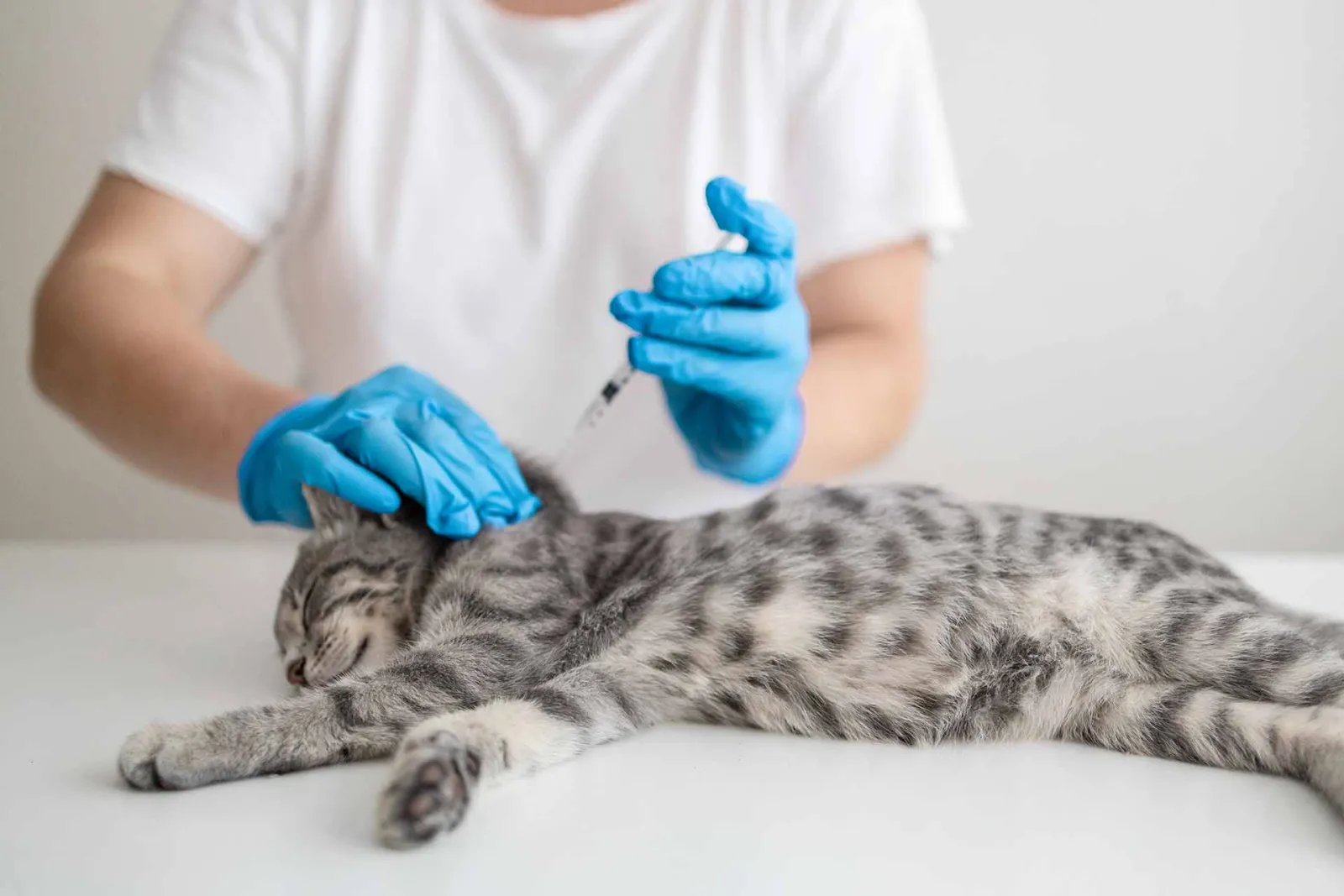Is There Such Thing as Over Vaccinations for Cats?
Are Cats Being Over-Vaccinated?
- Explore whether annual boosters can cause immune system overstimulation.
- Understand the importance of tailoring a cat's vaccination program to their needs.
- Learn how to recognize and manage allergic reactions in cats after vaccinations.

Vaccinations are a vital part of keeping your feline companion safe from harmful diseases. They play a key role in supporting a healthy immune system and preventing severe illnesses. However, many cat owners have concerns about whether their pets could receive too many vaccinations. In particular, the question arises: can cats experience over-vaccination, leading to complications such as immune system overstimulation or allergic reactions? In this blog, we'll explore the concept of over-vaccination in cats, and how to strike the right balance with a well-managed vaccination program.
Understanding Vaccinations for Cats
Vaccinations help prepare your cat's immune system to fight off certain diseases by introducing a safe version of the virus or bacteria. This prepares their immune system for future exposure to the real pathogen. However, just like in humans, vaccines must be carefully administered and tailored to the needs of the individual pet.
Cats generally receive core vaccines, such as those for feline panleukopenia, feline calicivirus, and rabies, as part of their vaccination program. These vaccines are critical to protecting your pet from life-threatening diseases. While the benefits of vaccinations are undeniable, some pet owners may worry about the potential for immune system overstimulation if vaccinations are given too frequently.
What Is Immune System Overstimulation?
The concept of immune system overstimulation refers to the idea that too many vaccines, or giving them too often, could overwhelm a cat's immune system. The concern is that this might cause unnecessary strain, leading to adverse effects such as allergic reactions, lethargy, or even the development of chronic inflammation.
While immune system overstimulation can theoretically happen, modern veterinary science is designed to prevent this. Veterinarians recommend annual boosters or vaccinations on a customized schedule based on your cat's lifestyle and risk factors. These schedules ensure that your cat remains protected without receiving unnecessary vaccines. However, to avoid any risk of overstimulation, it's important to follow a carefully tailored vaccination program that a qualified veterinarian prescribes.
At Forever Vets, our team carefully monitors your cat's health and adjusts vaccination schedules to minimize any risk of overstimulation while keeping your cat fully protected.
Allergic Reactions to Vaccinations in Cats
Another common concern among cat owners is the possibility of allergic reactions following vaccinations. Just like humans, cats can have adverse reactions to vaccines, although these reactions are rare. Most often, reactions are mild and may include temporary discomfort at the injection site, lethargy, or a slight fever. However, in very rare cases, some cats can experience more serious allergic reactions such as swelling, difficulty breathing, or vomiting.
If your cat shows any signs of a severe allergic reaction after receiving a vaccine, it's important to contact your vet immediately. Knowing the signs of an allergic response can help you act quickly, ensuring your pet gets the care they need to recover safely.
Our team at Forever Vets is always available to address any concerns about post-vaccine allergic reactions and can recommend preemptive measures for pets with known sensitivities. You can schedule an appointment online to discuss any worries with one of our expert veterinarians.
Annual Boosters: Are They Necessary?
Annual boosters are recommended by most veterinarians to ensure that a cat remains protected from diseases over time. While these annual boosters are crucial for maintaining long-term immunity, some cat owners question whether they are really needed every year. The frequency of vaccinations often depends on the specific vaccine, as well as your cat's environment, lifestyle, and health status. For example, indoor cats with minimal exposure to other animals might not require as frequent boosters as outdoor cats who come into contact with various potential disease carriers.
Modern veterinary guidelines often suggest that some vaccines can be administered every three years, while others, like rabies, may still require annual boosters due to legal requirements or high exposure risks. Your veterinarian will assess your cat's specific needs and develop a vaccination schedule that's tailored to their lifestyle, ensuring the balance between protection and over-vaccination is maintained.
By partnering with a trusted veterinary clinic like Forever Vets, you can receive guidance on the best vaccination schedule for your pet, ensuring your cat stays protected without unnecessary vaccines.
Striking the Right Balance in Your Cat's Vaccination Program
So, is there such a thing as over-vaccination for cats? The short answer is that while over-vaccination is a concern in theory, following a proper vaccination program reduces the risks of immune system overstimulation or allergic reactions. With advancements in veterinary science, your cat can receive vaccines on a schedule that is optimized for their health, minimizing any risks associated with too many vaccines.
The key to preventing over-vaccination is to work closely with your veterinarian. By developing a vaccination plan that fits your cat's specific needs, you can ensure they remain protected from disease without receiving unnecessary treatments. Regular checkups and open communication with your vet will help keep your cat healthy while mitigating any potential risks associated with vaccinations.
If you're concerned about your cat's vaccinations, don't hesitate to schedule an appointment with Forever Vets. Our team is dedicated to providing the best care for your feline companion, with personalized vaccination plans that safeguard your pet's health.


